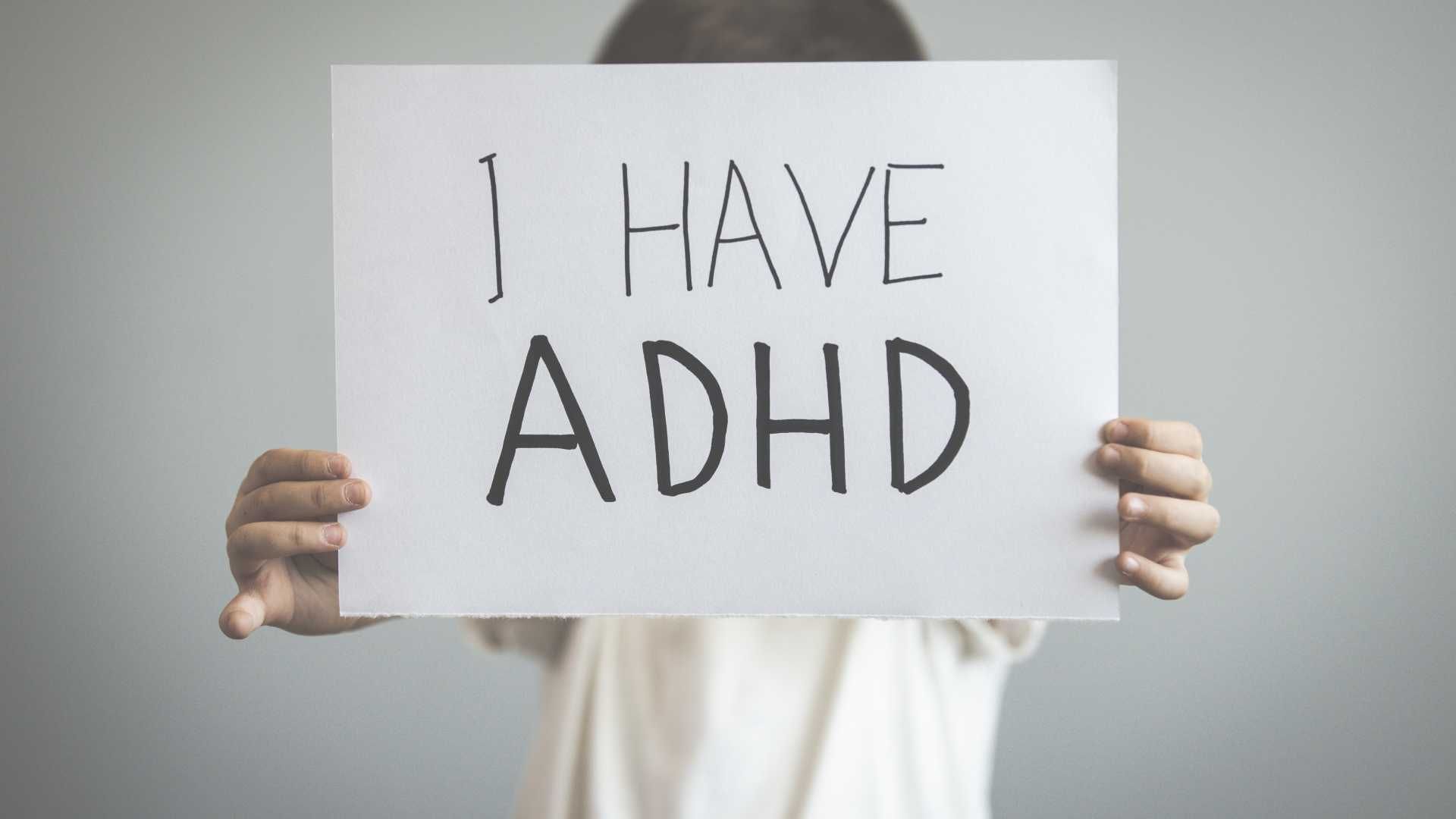ADHD Treatment- "Find Out if You Have ADHD Today"

ADHD. Four letters that can have a profound impact on your daily life. Whether you've just heard of ADHD or suspect that you may be living with it, finding answers is the first step towards understanding and managing this condition. In this blog post, we'll dive into everything you need to know about ADHD - from common symptoms and different types to how to get diagnosed and treatment options available. So buckle up, because by the end of this article, you'll be armed with valuable knowledge to help navigate your journey with ADHD! Let's get started.
What is ADHD?
ADHD, or Attention-Deficit/Hyperactivity Disorder, is a neurodevelopmental disorder that affects both children and adults. It's not just about being hyperactive or easily distracted; ADHD encompasses a wide range of symptoms and challenges.
At its core, ADHD involves difficulties with attention, impulsivity, and hyperactivity. Individuals with ADHD often struggle to stay focused on tasks or conversations. They may be forgetful and have trouble organizing their thoughts or belongings.
Hyperactivity is another key component of ADHD. People with this condition may have a constant need for movement and find it difficult to sit still for long periods of time. They might fidget, tap their feet, or squirm in their seats.
Impulsivity can also be an issue for individuals with ADHD. They may act without thinking about the consequences, interrupt others during conversations, or struggle to wait their turn.
It's important to note that everyone experiences ADHD differently. Some people primarily exhibit symptoms of inattention while others lean more towards hyperactivity and impulsivity. Additionally, the severity of these symptoms can vary from mild to severe.
Understanding what ADHD entails sets the stage for seeking proper diagnosis and treatment options tailored specifically to your needs. So now that we've covered the basics let's delve deeper into this complex condition! Stay tuned for more insights on common symptoms and different types of ADHD.
Common Symptoms of ADHD
ADHD, or Attention-Deficit/Hyperactivity Disorder, is a neurodevelopmental disorder that affects both children and adults. It can manifest in various ways and can impact different areas of life.
One common symptom of ADHD is impulsivity. Individuals with ADHD often struggle to control their impulses, leading to impulsive actions and decision-making. This can be seen in behaviors like interrupting others during conversations or acting without thinking about the consequences.
Another characteristic symptom is hyperactivity. People with ADHD may find it difficult to sit still for long periods of time and are constantly on the move. They may fidget, tap their feet, or have difficulty staying seated.
Inattention is another key symptom of ADHD. Those affected often have trouble focusing on tasks at hand or maintaining attention for extended periods. They may become easily distracted by external stimuli or have difficulty organizing and completing tasks.
Forgetfulness is also associated with ADHD. People with this condition may frequently lose things, forget appointments or deadlines, and struggle with remembering important details.
It's important to note that symptoms will vary from person to person, and not everyone will experience all these symptoms consistently.
Understanding the common symptoms can help individuals recognize if they exhibit signs of ADHD but remember that only a professional diagnosis can confirm the presence of this disorder.
Different Types of ADHD
ADHD, or Attention Deficit Hyperactivity Disorder, is not a one-size-fits-all condition. There are actually different types of ADHD that can manifest in individuals. Understanding these variations can help in tailoring treatment approaches for better management.
1. Predominantly Inattentive Presentation: People with this type struggle primarily with attention and focus issues. They may have difficulty staying on task, being easily distracted, and appearing forgetful or disorganized.
2. Predominantly Hyperactive-Impulsive Presentation: This type is characterized by hyperactivity and impulsivity rather than inattention. Individuals may exhibit excessive restlessness, fidgeting, impatience, and often act without considering the consequences.
3. Combined Presentation: As the name suggests, this type involves a combination of both inattentive and hyperactive-impulsive symptoms.
It's important to note that everyone's experience with ADHD can vary greatly – some may have mild symptoms while others face more severe challenges.
Identifying which type(s) an individual has can assist doctors in creating personalized treatment plans tailored to their specific needs; it allows for targeted interventions that address the dominant symptoms they face daily.
How to Get Diagnosed with ADHD
If you suspect that you or someone you know may have ADHD, it's important to seek a proper diagnosis. While there is no definitive test for ADHD, a comprehensive evaluation can help determine if the symptoms align with the disorder.
The first step in getting diagnosed with ADHD is to schedule an appointment with a healthcare professional who specializes in mental health or neurodevelopmental disorders. This could be a psychiatrist, psychologist, or pediatrician.
During the evaluation process, the healthcare professional will gather information about your medical history and conduct interviews and assessments. They may also request input from family members or teachers to gain additional insights into your behavior patterns.
It's crucial to be open and honest during this evaluation process. Share any concerns you have about your symptoms and provide specific examples of how they affect different aspects of your life – such as work performance, relationships, and daily activities.
In some cases, additional tests may be recommended to rule out other potential causes for your symptoms. These may include psychological tests, cognitive assessments, or neurological exams.
Keep in mind that receiving an ADHD diagnosis involves ruling out other possible explanations for your symptoms and assessing whether they meet specific criteria outlined in diagnostic manuals like the DSM-5 (Diagnostic and Statistical Manual of Mental Disorders).
Remember that seeking an official diagnosis is essential because it allows you access to appropriate treatment options tailored specifically to managing ADHD symptoms effectively. So don't hesitate – take that first step towards understanding yourself better today!
Traditional Treatment Options for ADHD
When it comes to managing ADHD, there are several traditional treatment options available. These treatments focus on helping individuals better manage their symptoms and improve their overall functioning.
One common approach is medication therapy. Stimulant medications such as Ritalin or Adderall are often prescribed to help increase attention and decrease hyperactivity and impulsivity. These medications work by affecting the levels of certain chemicals in the brain that play a role in regulating attention and behavior.
Another traditional treatment option is behavioral therapy. This type of therapy involves working with a therapist who can provide strategies and techniques to help individuals with ADHD develop coping skills, improve organizational abilities, and enhance problem-solving capabilities.
In addition to medication and behavioral therapy, educational interventions can also be beneficial for those with ADHD. Specialized classroom accommodations, such as preferential seating or additional time for assignments, can help accommodate the unique needs of individuals with ADHD in an academic setting.
It's important to note that not all individuals with ADHD will require medication or formal therapy. Some may find success through lifestyle changes alone, such as implementing regular exercise routines or creating structured daily schedules.
The choice of treatment options will depend on each individual's specific needs and preferences. It's essential to consult with healthcare professionals who specialize in treating ADHD to determine which approach is best suited for you or your loved one. Remember - everyone's journey with ADHD is different!
Alternative Treatment Options for ADHD
1. Mindfulness and Meditation: Many individuals with ADHD find relief through mindfulness practices and meditation. These techniques help to calm the mind, improve focus, and reduce impulsivity. By learning to be present in the moment, individuals can better manage their symptoms.
2. Exercise and Physical Activity: Regular exercise has been shown to have a positive impact on ADHD symptoms. Engaging in activities such as running, swimming, or yoga can help increase dopamine levels in the brain, improving concentration and reducing hyperactivity.
3. Dietary Changes: While there is no specific diet that has been proven to cure ADHD, certain dietary changes may help alleviate symptoms. Some people find that eliminating processed foods high in sugar and additives can make a difference. Additionally, incorporating more omega-3 fatty acids found in fish oil or flaxseed can support brain health.
4. Cognitive Behavioral Therapy (CBT): This type of therapy focuses on identifying negative thought patterns and behaviors associated with ADHD while teaching coping strategies to manage them effectively. CBT helps individuals develop skills like organization, time management, problem-solving, and impulse control.
5. Herbal Supplements: Some herbal supplements like ginkgo biloba or green tea extract may offer mild benefits for managing ADHD symptoms; however, it is important to consult with a healthcare professional before trying any alternative treatments.
Remember that what works for one person may not work for another when it comes to alternative treatment options for ADHD. It's essential to explore various approaches under the guidance of healthcare professionals while considering individual preferences and needs.
Tips for Managing and Coping with ADHD
1. Establish a Routine: Creating and sticking to a daily routine can help individuals with ADHD stay organized and focused. Set specific times for meals, work/study periods, exercise, and leisure activities.
2. Use Visual Reminders: Visual cues can be extremely helpful in managing ADHD symptoms. Utilize calendars, to-do lists, or digital reminders on your phone to help you remember important tasks and deadlines.
3. Break Tasks into Smaller Steps: Large tasks can feel overwhelming for individuals with ADHD. Breaking them down into smaller, more manageable steps makes them easier to tackle.
4. Minimize Distractions: Create an environment that is conducive to concentration by minimizing distractions such as noise or cluttered spaces. Consider using noise-cancelling headphones or working in a quiet area if necessary.
5. Practice Mindfulness Techniques: Incorporating mindfulness techniques like deep breathing exercises or meditation can help reduce stress levels and improve focus.
6. Seek Support from Others: Don't hesitate to reach out for support from loved ones or join support groups specifically designed for individuals with ADHD; knowing you're not alone can make a big difference.
7. Take Regular Breaks: Giving yourself regular breaks throughout the day allows your brain time to recharge and prevents burnout.
8. Maintain Healthy Habits: A balanced diet, regular exercise, adequate sleep, and avoiding excessive caffeine/alcohol consumption are all essential components of managing ADHD symptoms effectively.
Remember that everyone's experience with ADHD is unique - what works for one person may not work for another - so it's crucial to explore different strategies until you find what works best for you!
Final Thoughts
Living with ADHD can be challenging, but it doesn't have to define you. With the right treatment and support, individuals with ADHD can lead fulfilling lives and reach their full potential.
Remember, if you suspect that you or someone you know may have ADHD, don't hesitate to seek professional help for a proper diagnosis. Understanding your symptoms and discovering the specific type of ADHD you have is essential in finding the most effective treatment approach.
Traditional treatments such as medication and therapy are widely used and have proven beneficial for many individuals. However, alternative options like lifestyle changes, dietary modifications, and natural remedies can also offer relief from symptoms.
Managing and coping with ADHD requires patience, understanding, and persistence. It's important to develop strategies that work best for your unique needs while seeking support from loved ones or joining support groups to connect with others facing similar challenges.
Remember that everyone's journey with ADHD is different. What works for one person may not work for another. Be open-minded in exploring various treatment options until you find what works best for you.
So whether it's through medication or holistic approaches like exercise or mindfulness practices, there are ways to effectively manage the symptoms of ADHD so they don't hinder your daily life.
In conclusion, understanding your own experience with ADHD is crucial in finding appropriate solutions that allow you to thrive despite any challenges this condition presents. By taking proactive steps towards managing your symptoms and seeking out resources available to help navigate life with ADHD, there is hope for a brighter future filled with success and happiness!











